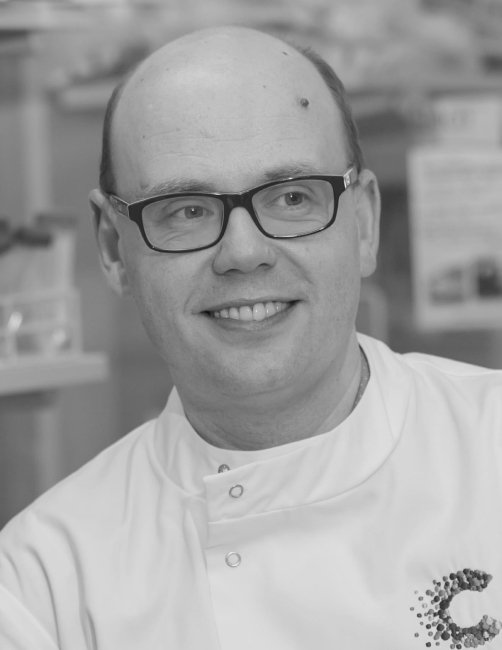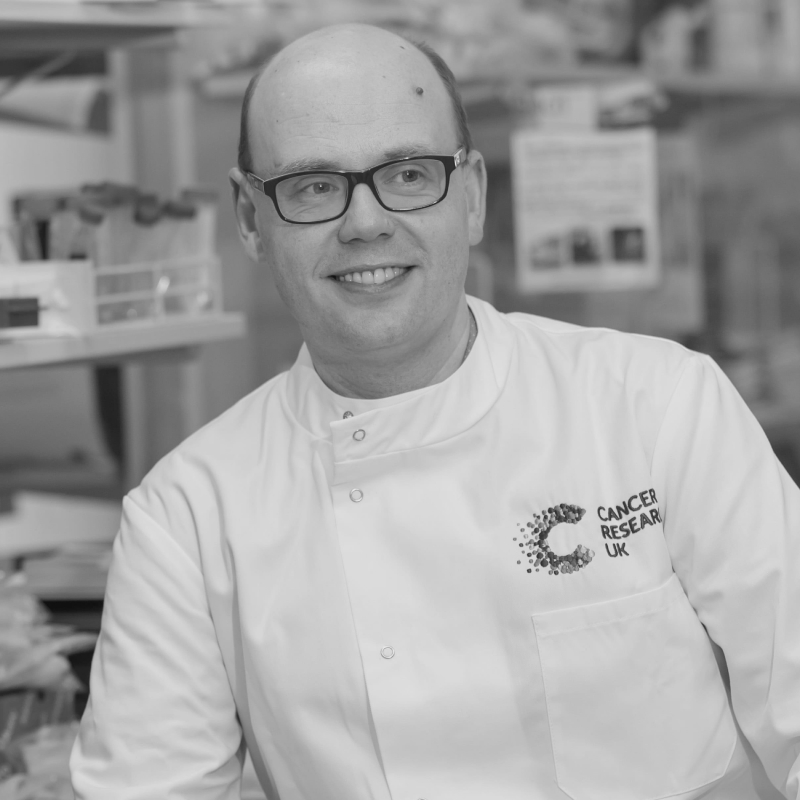
Owen Sansom
Beatson Institute for Cancer Research, Glasgow. UK
Colorectal cancer (CRC)—the third most common cancer in the UK and the second leading cause of cancer mortality—is a heterogeneous disease comprising distinct molecular subgroups that differ in their histopathological features, prognosis, and response to therapy. Despite advances in the detection and treatment of early-stage disease, patients with advanced, recurrent, or metastatic CRCs have few therapeutic options and a dismal prognosis. Utilising state-of-the-art preclinical models harbouring key driver mutations, our group is interrogating the molecular mechanisms underpinning CRC initiation, progression, response to therapy, and metastasis. Our overarching goals are to identify early-stage diagnostic biomarkers and develop stage- and subtype-specific targeted therapies.
As part of these efforts, we are major contributors to a number of large cancer consortia, with the aim of driving more effective therapeutic approaches in colorectal cancer. Our group leads a Europe-wide, CRUK-funded consortium of basic, translational, and clinical scientists (ACRCelerate—Colorectal Cancer Stratified Medicine Network) to identify new therapeutic targets for the different CRC subtypes and deliver molecular insights with the potential to inform clinical decision-making and patient stratification. Similarly, through participation in the CRUK Grand Challenge Rosetta consortium, we are working to therapeutically exploit the altered metabolic dependencies of oncogene-addicted CRCs, and determine how distinct tumour metabolic profiles can confer resistance or predict sensitivity to standard-of-care or novel targeted therapies. Moreover, as a key contributor to the CRUK Grand Challenge SpecifiCancer consortium, we are employing transcriptional, epigenetic, and proteomic approaches to understand why there are tissue- and cell type-specific differences in the response to oncogenic mutations, with the aim of developing methods to suppress the impact of these mutations in cancer.
In addition, we are partnering with a number of leading industry innovator to accelerate the path from bench to bedside. For example, in partnership with Novartis, we are working towards the development of novel KRAS inhibitors, to address a pressing clinical need in colorectal cancer.
Colorectal cancer (CRC)—the third most common cancer in the UK and the second leading cause of cancer mortality—is a heterogeneous disease comprising distinct molecular subgroups that differ in their histopathological features, prognosis, and response to therapy. Despite advances in the detection and treatment of early-stage disease, patients with advanced, recurrent, or metastatic CRCs have few therapeutic options and a dismal prognosis. Utilising state-of-the-art preclinical models harbouring key driver mutations, our group is interrogating the molecular mechanisms underpinning CRC initiation, progression, response to therapy, and metastasis. Our overarching goals are to identify early-stage diagnostic biomarkers and develop stage- and subtype-specific targeted therapies.
As part of these efforts, we are major contributors to a number of large cancer consortia, with the aim of driving more effective therapeutic approaches in colorectal cancer. Our group leads a Europe-wide, CRUK-funded consortium of basic, translational, and clinical scientists (ACRCelerate—Colorectal Cancer Stratified Medicine Network) to identify new therapeutic targets for the different CRC subtypes and deliver molecular insights with the potential to inform clinical decision-making and patient stratification. Similarly, through participation in the CRUK Grand Challenge Rosetta consortium, we are working to therapeutically exploit the altered metabolic dependencies of oncogene-addicted CRCs, and determine how distinct tumour metabolic profiles can confer resistance or predict sensitivity to standard-of-care or novel targeted therapies. Moreover, as a key contributor to the CRUK Grand Challenge SpecifiCancer consortium, we are employing transcriptional, epigenetic, and proteomic approaches to understand why there are tissue- and cell type-specific differences in the response to oncogenic mutations, with the aim of developing methods to suppress the impact of these mutations in cancer.
In addition, we are partnering with a number of leading industry innovator to accelerate the path from bench to bedside. For example, in partnership with Novartis, we are working towards the development of novel KRAS inhibitors, to address a pressing clinical need in colorectal cancer.



